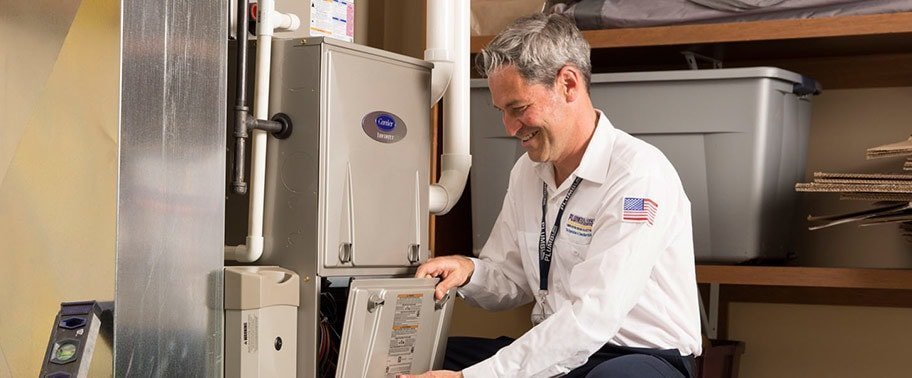
With winter season upon us, many Americans are finding themselves turning their heating systems up in order to remain comfy and warm. A bulk of houses in the U.S. use forced air heating systems in order to warm their houses to comfortable temperatures.
The manner in which forced air heating system operate is through heating air using a heater and after that pumping the air through a system of ducts. The warm air then comes out of the filters and heater repair richmond hill vents throughout your home. Unfortunately, this sort of heating unit dries the air out also that it flows. This triggers our sinuses to be irritated and dry and can likewise chap our lips and hands. This type of system has likewise been proven to be quite inefficient at having the ability to keep a continuous ambient temperature within a room, due to the truth that heated gasses are depended on, which obviously have a propensity to increase. What that implies is that, although the air at the face level might be 70 degrees Fahrenheit, which is quite comfortable, the air down near the flooring may only be 50 degrees and near the ceiling approximately 100 degrees. That can lead to lots of energy being wasted and to cold feet.
For homeowners who are looking for a more cost reliable, comfy and efficient way of warming their houses, there is an efficient option: hydronic heating. Heated pipes running https://furnace-repair-richmond-hill.ca/faq/ under a house's floorings are utilized by hydronic heating system to radiate heat up from the floorboards. There are numerous benefits that this type of system has compared to required heating system as well as other sort of alternative heater like geothermal or solar heating.
This problem is circumvented by hydronic heating systems, although at very first glance this may not be apparent. Rationally speaking, heating increases, so that any kind of heating system would appear to have similar issues.
With hydronic heating that isn't the case. Instead of convective heating being utilized, such as baseboard heating systems or forced air, hydronic heaters utilize radiant heat. The walls and floorboards are warmed, which radiates heat. It is similar to how the Earth is warmed by the Sun. This leads to comfortable temperatures at the surface without energy being wasted.
2. Energy Performance - There are two vital properties that hydronic heater have which make them far more effective compared to routine forced air systems. The very first thing is that, hydronic heater utilize radiant heat, so no energy is lost heating up a room's volume that isn't utilized, which is those couple of feet that are above your head to the ceiling. Second of all, because there isn't any ductwork utilized, no heat gets lost in the transfer from the furnace into the rooms you are attempting to heat. Whenever hot air gets passed through a duct, approximately 30% of this energy is lost prior to it reaching its destination.
Relatively Inexpensive - Solar and geothermal heating systems have been getting a lot of press recently. On the other hand, it is possible to install a hydronic system for much less loan than either of those systems, and take in a lower quantity of fossil fuel compared to traditional forced air heating systems.
A hydronic heating system may be perfect for you if you are browsing for a constant and glamorous heating system for your home that is fairly cost effective expense.
The method that forced air heating system run is through heating air utilizing a heater and then pumping the air through a system of ducts. There are numerous advantages that this type of system has actually compared to forced heating system as well as other kinds of alternative heating systems like solar or geothermal heating.
Realistically speaking, heating rises, so that any kind of heating system would appear to have comparable issues.
Rather of convective heating being used, such as baseboard heating systems or forced air, hydronic heaters make usage of radiant heating. The very first thing is that, hydronic heating systems utilize glowing heating, so no energy is wasted heating up a space's volume that isn't used, which is those couple of feet that are above your head to the ceiling.